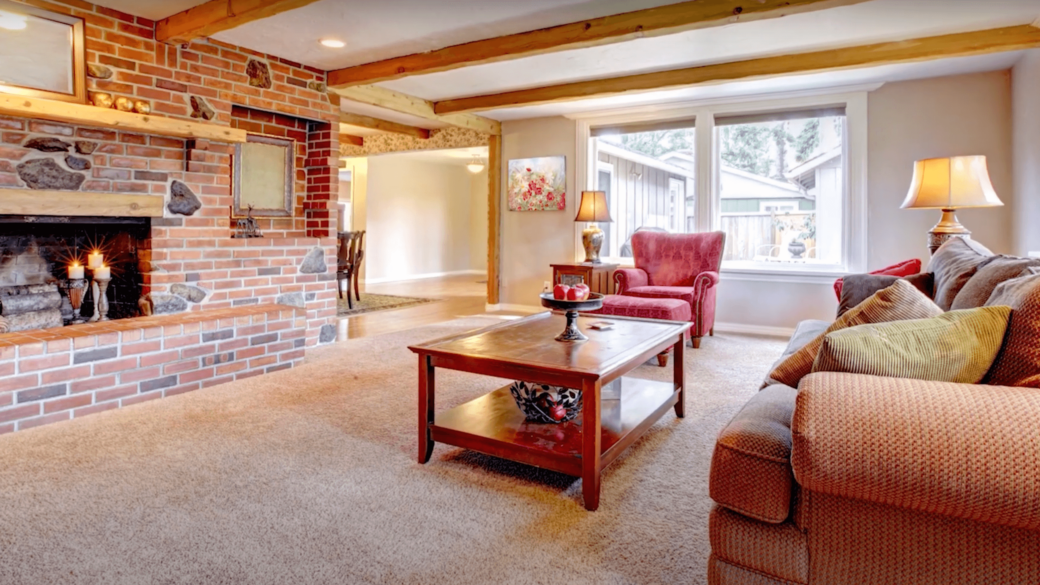Neglecting to clean your apartment before moving out can result in several unfavorable consequences. The most immediate impact is the potential forfeiture of your security deposit. Many landlords use this deposit to ensure property maintenance. Leaving the apartment in poor condition may result in cleaning and repair costs being deducted from the security deposit.
Furthermore, departing from an apartment in a disheveled state could also have detrimental effects on your rental history and references, potentially making it more challenging to secure future rental accommodations.
What Happens If You Don’t Clean Your Apartment When You Move Out?
Relocating can be a whirlwind of packing, organizing, and bittersweet emotions of saying goodbye to a place you once called home. Amidst this commotion, it’s not uncommon for cleaning the apartment before handing over the keys to slip down the list of priorities. However, ignoring this crucial step can have far-reaching consequences. What happens if you don’t clean your apartment when you move out?
This article discusses the consequences of not cleaning the apartment before moving out, the security deposit, and tenant expectations of cleanliness. We will also explore the commonly overlooked areas during cleaning and touch upon the subject of addressing necessary repairs before vacating the premises.
Scenarios Where The Landlord Can Keep The Security Deposit
The security deposit functions as a financial safeguard for landlords, providing protection against damages or additional cleaning expenses resulting from a tenant’s neglect. There are several common scenarios in which a landlord is justified in retaining the security deposit. These include:
-
Significant damage beyond normal wear and tear:
This can encompass instances such as substantial wall damage, broken windows, or harm to provide appliances within the apartment.
-
Unpaid rent:
If a tenant departs with unpaid rent, the landlord can utilize the security deposit to cover these outstanding costs.
-
Excessive dirtiness necessitates professional cleaning:
In cases where the apartment is left in an exceptionally dirty condition, requiring the services of professionals for cleaning, the expenses for these services can be subtracted from the security deposit.
Scenarios Where The Landlord Cannot Keep The Security Deposit
Understanding their rights is crucial for renters. There are specific situations where landlords are not legally permitted to retain the security deposit:
-
Normal wear and tear:
Landlords must distinguish wear and tear from damage. Withholding the security deposit for normal wear and tear like faded paint or worn carpeting is unjustified.
-
Pre-existing conditions:
Damages from before the tenant moved in should not be deducted from the security deposit.
-
Unlawful clauses in the lease agreement:
Lease agreements may contain illegal or tenant-infringing clauses. Tenants must read their leases and know their rights.
Legal Implications
Tenants must prioritize familiarizing themselves with the legal landscape governing the upkeep and return conditions of a leased apartment. Each state maintains its own unique set of laws and regulations concerning security deposits, cleanliness standards, and the dynamics of tenant-landlord relationships.
For example, certain states specify a particular timeframe within which the landlord must refund the security deposit. Acquiring knowledge of these laws empowers tenants, granting them awareness of their rights and obligations.
Furthermore, should a landlord unjustly withhold the security deposit for cleaning or repairs, tenants have the option to contest these deductions in a small claims court. It is advisable to consider seeking legal guidance or reaching out to a local tenants’ association to gain a deeper understanding of the legal framework specific to your jurisdiction.
How Clean Should The Apartment Be Before You Move Out?
The standard guideline is to leave the apartment in the same condition as it was when you initially moved in. This entails cleaning all rooms, appliances, fixtures, and floors thoroughly. Often, a comprehensive cleaning is anticipated, which may involve tasks such as cleaning windows, scrubbing the oven, and wiping down baseboards. It’s recommended to consult the move-out checklist supplied by your landlord or leasing office to ensure that all cleaning requirements are fulfilled.
Even if your landlord didn’t clean the apartment before you moved in, you should still make sure it is clean before you move out.
What Do Renters Often Forget To Clean Before They Move Out?
In the midst of the chaotic process of moving, there are certain cleaning tasks that can easily slip one’s mind. Frequently neglected areas encompass:
- Inside of appliances such as ovens and microwaves
- The spaces behind and beneath appliances and furniture
- Cleaning ceiling fans and light fixtures
- Tending to cabinets, drawers, and closets
- Paying attention to baseboards and crown moulding
Ensuring a meticulous cleaning of these often-forgotten areas can play a pivotal role in securing the return of your security deposit.
Checklists and Documentation
A move-out checklist provided by the landlord can be an invaluable guide to ensuring that the apartment meets the necessary standards of cleanliness and repair. This checklist usually specifies cleaning and repair tasks, eliminating uncertainty. In addition to following the checklist, it is wise to document the apartment’s condition through photographs or videos both before moving in and when moving out. This visual record can offer a transparent basis for comparison and serve as crucial evidence in the event of disputes concerning the apartment’s condition.
Final Inspection
The final inspection represents a crucial phase in the move-out procedure. It’s the moment when either the landlord or a designated representative evaluates the apartment’s condition against the predefined standards outlined in the lease agreement. Tenants possess the right to request a walk-through inspection with the landlord, providing an opportunity for in-person discussion and the addressing of any concerns.
During this inspection, any areas necessitating additional cleaning or repairs can be pinpointed and discussed. Preparing for this inspection by diligently following the move-out checklist and conducting comprehensive cleaning and minor repairs can greatly facilitate the process, ensuring a fair and transparent assessment.
Professional Cleaning Services
Engaging professional cleaning services can be a practical solution for tenants who find themselves pressed for time during the move-out phase. Professional cleaners ensure that the apartment is impeccably clean and aligns with the cleanliness standards specified by the landlord or lease agreement. While expensive, it may be cheaper and less stressful than deducting from the security deposit for cleaning.
Furthermore, retaining a receipt from the professional cleaning service can serve as concrete evidence of the cleaning effort, providing an extra layer of protection in case any disputes arise concerning the apartment’s cleanliness at the time of move-out.
Should Repairs Be Carried Out By Renters Before They Move Out of an Apartment?
While landlords generally handle significant repairs, tenants can take initiative to address minor repairs such as small nail holes or minor floor scratches before moving out. It’s recommended to have a conversation with your landlord to clarify which repairs they expect you to undertake. Taking care of these minor repairs not only demonstrates responsibility but also contributes to maintaining a positive landlord-tenant relationship and enhancing the likelihood of receiving your security deposit back in full.
Potential Impact on Credit Score
Unresolved disputes or unpaid fees related to cleaning and repairs have the potential to escalate to collections, and this, in turn, can have detrimental consequences on a tenant’s credit score. A bad credit report can make renting and other credit-dependent activities harder. To avoid these issues, discuss cleaning and repair costs with the landlord.
Understanding the possible long-term financial implications tied to the condition of the apartment during move-out underscores the importance of adhering to the cleanliness and repair requirements specified in the lease agreement.
Conclusion
Ensuring a comprehensive cleaning and addressing minor repairs before moving out serve a dual purpose. It’s not solely about securing the return of your security deposit; it’s also about preserving a positive rental history and garnering favourable references for future leases.
By comprehending your landlord’s expectations, familiarising yourself with the provisions in your lease agreement, and staying informed about the regulations concerning security deposits in your state, you can significantly enhance the smoothness of your move-out process and minimise the likelihood of disputes.


